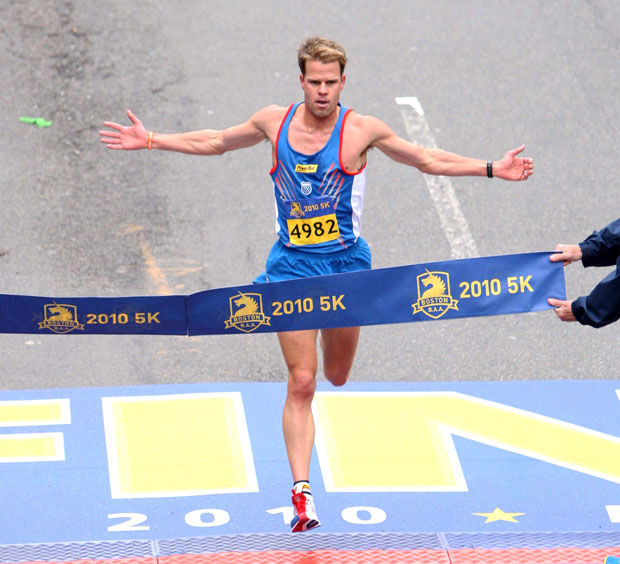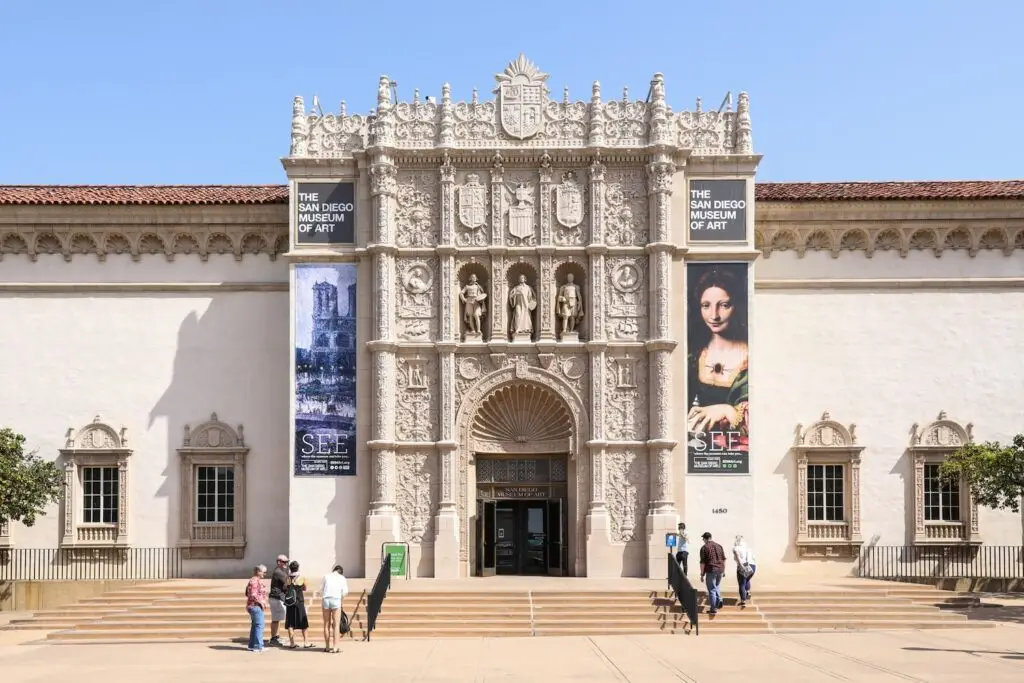
Josh Cox
You grew up in Rancho San Diego. Favorite SD running route? I love to start in Cardiff, go south along the coast, through Torrey Pines to the Glider Port, then back to Cardiff.
You are the current American record-holder for the 50K (31-mile ultramarathon). I broke it twice, in 2009 (2:47), and in 2011 (2:43). The second time, I missed the world record by seven seconds. That’s two tenths of a second per mile. My coach said, “You have the second-fastest time in history, you have to be happy about this.”
What’s it like to win a marathon, which you’ve done more than once? It’s like getting a diploma—once you run a race, no one can take it from you. When you set a record, you’re beating all the people on all the days in history. But records are on loan. Titles are special because they are forever—you’re always the champion of that race for that year.
Why has Boston always been significant to runners? Marathon Monday is Patriots Day, a regional holiday. For a few days, Boston becomes the center of the running universe. In order to run, you have to get a Boston Qualifier. People make a pilgrimage. It’s their Olympics.
What was it like reporting from Boston last year? I was about to do the postrace show. I was in Copley Square, just past the finish line, when I heard a massive, deafening boom. It was like slow motion. People were on the ground. There was smoke in the air and police telling everyone to get back from the finish. They didn’t know if there would be more explosions. The network was down and I couldn’t call my wife. It was the worse thing I’ve ever witnessed in my life.
How do you think the bombing changed things? Everyone wants to participate. Instead of limiting it to 27,000 runners, they increased the field size to 36,000. Still, a lot of my elite athlete friends can’t get in. This week, the Boston Athletic Association sent out a no-bags policy for the race. Boston went to great lengths last year. I saw 10 bomb-sniffing dogs before it ever happened. But Boylston Street is a crowded dance floor and 26.2 miles is a lot of real estate. Everyone has to be the eyes and ears.
Advice for runners? There’s no luck and no short cuts. You just have to put in the work. Control the controllables. Competitive runners can’t control how much talent we possess, but we do control our alarm clocks.
What would you say to beginners? Most people give up before the initial two to three weeks, before their body adapts. They’re thinking about the pain. You just have to get fit. Boston is a reminder that you get one shot and one body to do it in.
PARTNER CONTENT
Watch Josh on the Universal Sports Network on April 21 starting at 5:30 a.m. PT, on the rebroadcast at 5 p.m., or live.


















